Abstract
When antigen-specific T cells are pulsed by antigen-presenting cells (APC) in the presence of HIV they are functionally deleted following subsequent exposure to syngeneic APC in the absence of HIV. Recombinant soluble HIV envelope (gp120) is able to induce a similar effect which, unlike that induced by HIV, is reversible. Neither HIV nor gp120 affect the ability to respond to IL-2. Thus it is only antigen-specific responses involving the T cell receptor pathways and CD4/MHC class II interaction that appear to be inhibited by HIV-1 and gp120. Furthermore, the functional impairment caused by HIV-1 is specific to the T cells that respond to the antigen in co-culture with HIV, as there is no apparent effect on 'bystander'-activated T cells specific for another antigen. Antigen-specific T cell lines may be deleted by a signalling mechanism which involves molecules other than gp120/CD4 but still requires MHC class II restriction.
Full text
PDF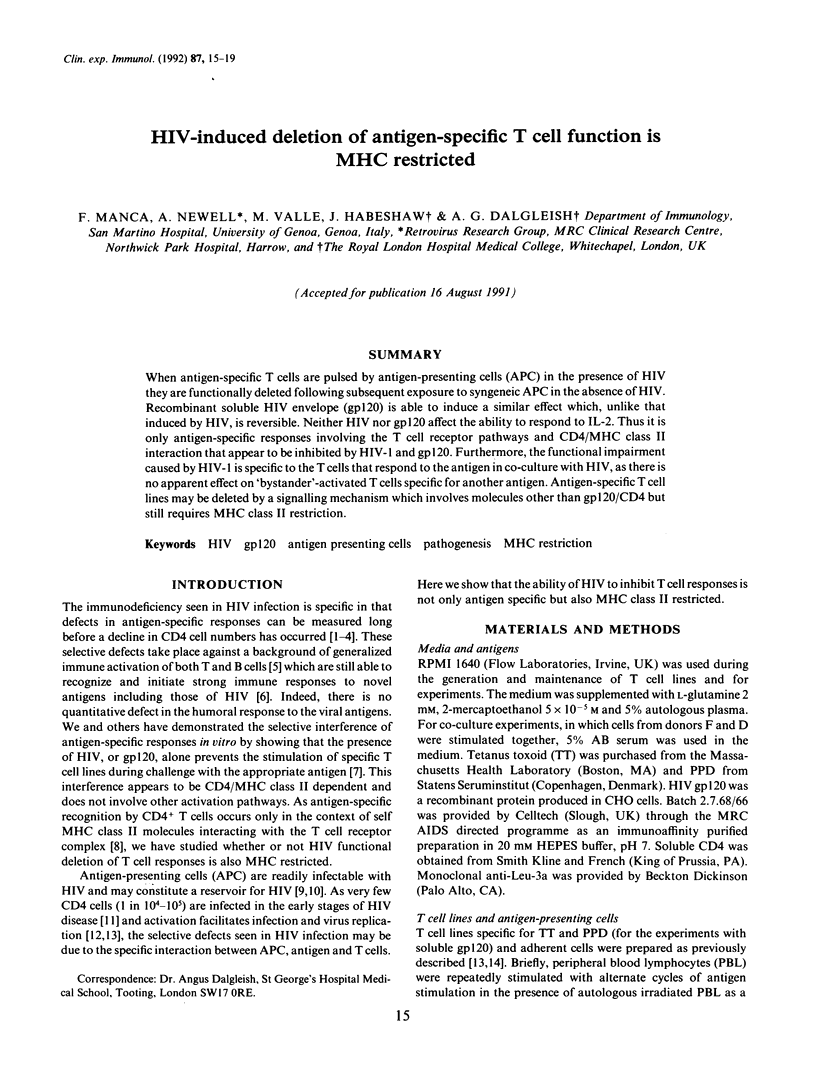
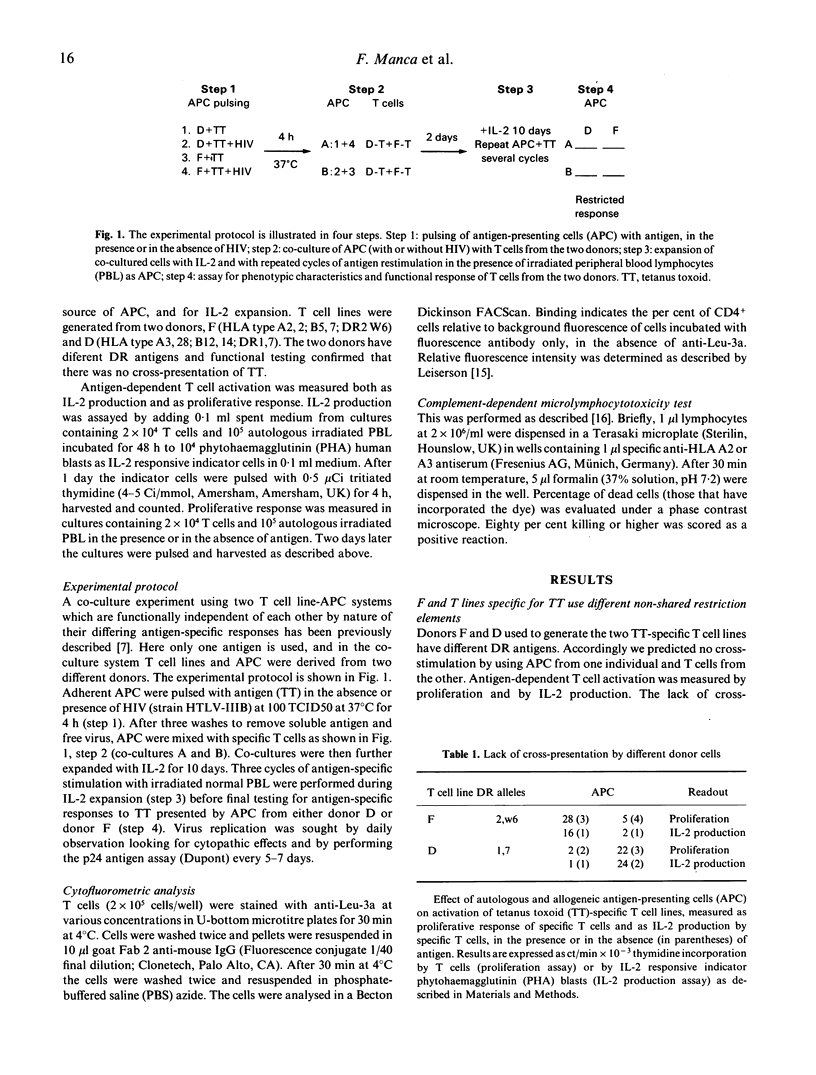
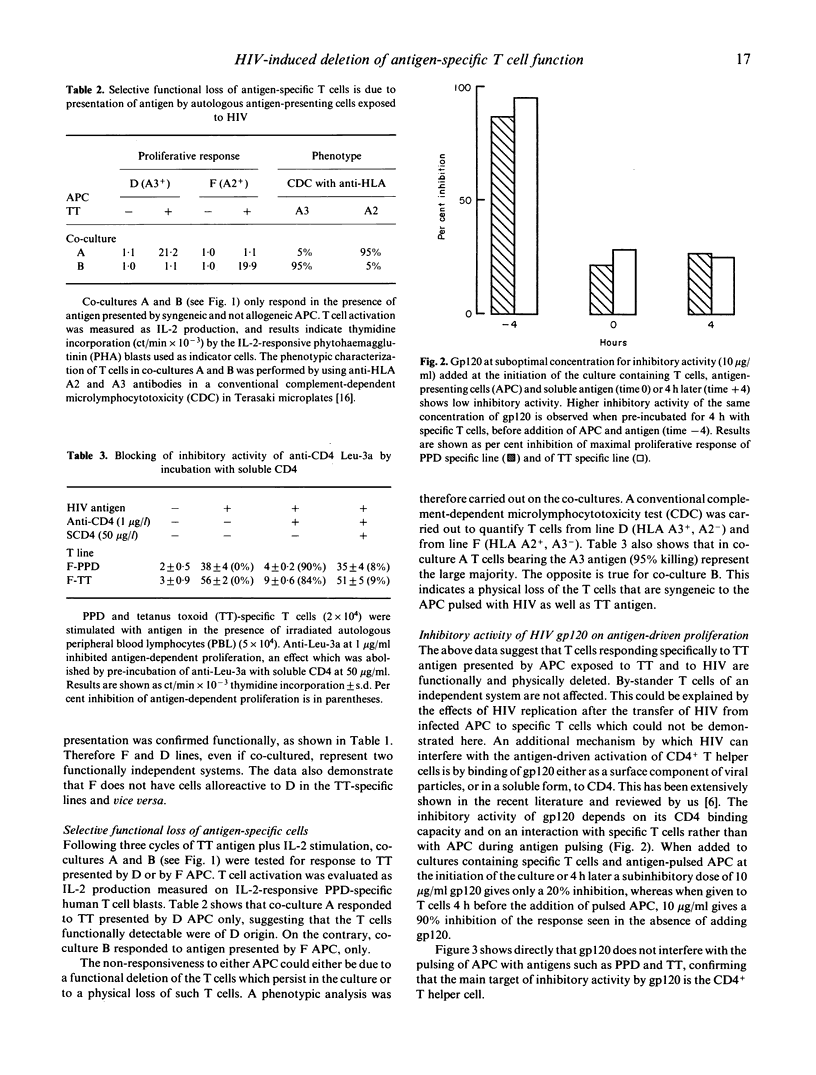
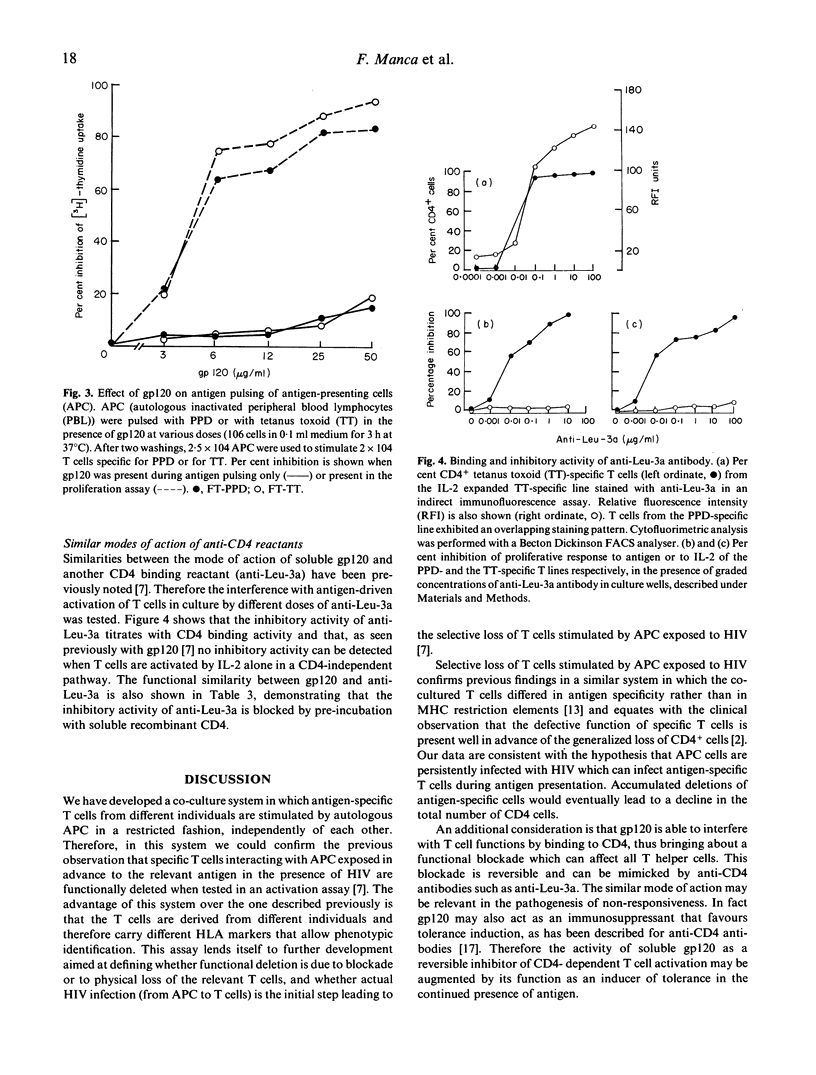
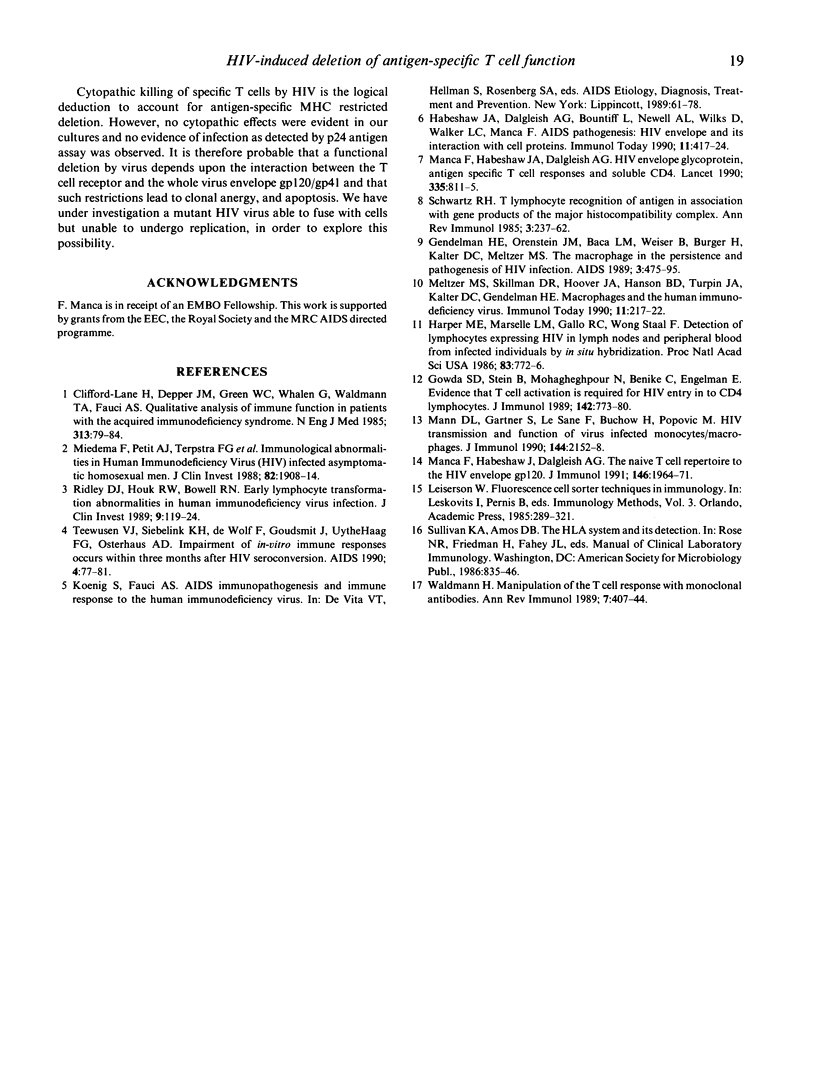
Selected References
These references are in PubMed. This may not be the complete list of references from this article.
- Gendelman H. E., Orenstein J. M., Baca L. M., Weiser B., Burger H., Kalter D. C., Meltzer M. S. The macrophage in the persistence and pathogenesis of HIV infection. AIDS. 1989 Aug;3(8):475–495. doi: 10.1097/00002030-198908000-00001. [DOI] [PubMed] [Google Scholar]
- Gowda S. D., Stein B. S., Mohagheghpour N., Benike C. J., Engleman E. G. Evidence that T cell activation is required for HIV-1 entry in CD4+ lymphocytes. J Immunol. 1989 Feb 1;142(3):773–780. [PubMed] [Google Scholar]
- Harper M. E., Marselle L. M., Gallo R. C., Wong-Staal F. Detection of lymphocytes expressing human T-lymphotropic virus type III in lymph nodes and peripheral blood from infected individuals by in situ hybridization. Proc Natl Acad Sci U S A. 1986 Feb;83(3):772–776. doi: 10.1073/pnas.83.3.772. [DOI] [PMC free article] [PubMed] [Google Scholar]
- Lane H. C., Depper J. M., Greene W. C., Whalen G., Waldmann T. A., Fauci A. S. Qualitative analysis of immune function in patients with the acquired immunodeficiency syndrome. Evidence for a selective defect in soluble antigen recognition. N Engl J Med. 1985 Jul 11;313(2):79–84. doi: 10.1056/NEJM198507113130204. [DOI] [PubMed] [Google Scholar]
- Manca F., Habeshaw J. A., Dalgleish A. G. HIV envelope glycoprotein, antigen specific T-cell responses, and soluble CD4. Lancet. 1990 Apr 7;335(8693):811–815. doi: 10.1016/0140-6736(90)90935-x. [DOI] [PubMed] [Google Scholar]
- Manca F., Habeshaw J., Dalgleish A. The naive repertoire of human T helper cells specific for gp120, the envelope glycoprotein of HIV. J Immunol. 1991 Mar 15;146(6):1964–1971. [PubMed] [Google Scholar]
- Mann D. L., Gartner S., Le Sane F., Buchow H., Popovic M. HIV-1 transmission and function of virus-infected monocytes/macrophages. J Immunol. 1990 Mar 15;144(6):2152–2158. [PubMed] [Google Scholar]
- Meltzer M. S., Skillman D. R., Hoover D. L., Hanson B. D., Turpin J. A., Kalter D. C., Gendelman H. E. Macrophages and the human immunodeficiency virus. Immunol Today. 1990 Jun;11(6):217–223. doi: 10.1016/0167-5699(90)90086-o. [DOI] [PubMed] [Google Scholar]
- Miedema F., Petit A. J., Terpstra F. G., Schattenkerk J. K., de Wolf F., Al B. J., Roos M., Lange J. M., Danner S. A., Goudsmit J. Immunological abnormalities in human immunodeficiency virus (HIV)-infected asymptomatic homosexual men. HIV affects the immune system before CD4+ T helper cell depletion occurs. J Clin Invest. 1988 Dec;82(6):1908–1914. doi: 10.1172/JCI113809. [DOI] [PMC free article] [PubMed] [Google Scholar]
- Ridley D. J., Houk R. W., Reid M. J., Boswell R. N. Early lymphocyte transformation abnormalities in human immunodeficiency virus infection. J Clin Immunol. 1989 Mar;9(2):119–124. doi: 10.1007/BF00916939. [DOI] [PubMed] [Google Scholar]
- Schwartz R. H. T-lymphocyte recognition of antigen in association with gene products of the major histocompatibility complex. Annu Rev Immunol. 1985;3:237–261. doi: 10.1146/annurev.iy.03.040185.001321. [DOI] [PubMed] [Google Scholar]
- Teeuwsen V. J., Siebelink K. H., de Wolf F., Goudsmit J., UytdeHaag F. G., Osterhaus A. D. Impairment of in vitro immune responses occurs within 3 months after HIV-1 seroconversion. AIDS. 1990 Jan;4(1):77–81. doi: 10.1097/00002030-199001000-00011. [DOI] [PubMed] [Google Scholar]
- Waldmann H. Manipulation of T-cell responses with monoclonal antibodies. Annu Rev Immunol. 1989;7:407–444. doi: 10.1146/annurev.iy.07.040189.002203. [DOI] [PubMed] [Google Scholar]


